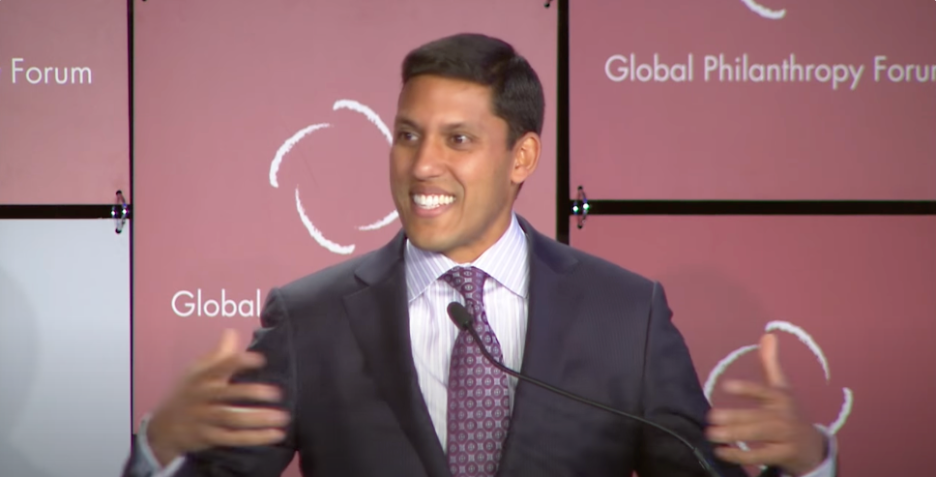Apparently, the value of philanthropy is determined by the worldview of the gift-giver.
Yvon Chouinard, the founder of Patagonia, announced earlier this week that he and his family have decided to give away the company to two entities. The first, the Patagonia Purpose Trust, received the family’s voting shares in Patagonia. It will have effective control over the company and ensure that Chouinard’s values as a progressive businessman continue into the future. The second entity, The Holdfast Collective, is a §501(c)(4) organization devoted to stopping climate change. Both the trust and the (c)(4) will have Chouinard’s family and his closest associates on their boards.
The New York Times did a positively gushing piece about this $3 billion transfer of wealth. For some reason, Ken Vogel, the most-astute writer at the Times on these issues, did not write the piece. Vogel had most recently done stellar reporting on Barre Seid’s $1.6 billion gift to a (c)(4) organization, the Marble Freedom Trust. He knows the tax-exempt turf and its nuances. Instead, David Gelles, who has covered Patagonia and climate change for many years, did the analysis and did it poorly.
The most-egregious error is the way Gelles compares the Chouinard transaction to the donation made by Seid. Gelles writes: “But Mr. Seid took a different approach in giving 100 percent of his electronics company to a nonprofit organization, reaping an enormous personal tax windfall as he made a $1.6 billion gift to fund conservative causes, including efforts to stop action on climate change.”
This is a very strange conclusion. Seid gave his $1.6 billion to a (c)(4) organization and Chouinard contributed 98% of $3 billion, approximately $2.94 billion, to a (c)(4) organization. The “enormous” tax break received by Seid was due to not paying capital gains on the transferred shares. If Seid took an “enormous” break, one has to conclude that Chouinard and his family took a “stupendous” break, since the capital gains on the shares of a company’s founder would certainly expose the owner to massive taxes.
One has to conclude that Gelles thinks the purpose of the gifts defines whether or not the transfer of shares generated a “tax windfall” or was simply doing a good deed. The fact is that the Chouinard contribution should generate even more outrage since the loss of federal revenue, by avoiding the capital-gains tax, was definitely greater than in the Seid case.
But wait, there is more. During the 1960s, there was a series of Congressional hearings on foundations and, more broadly, the nonprofit sector. One of the most-salient issues was a concern about how foundations were used to protect the “legacies” of their founder’s companies. At the time, it was common for a wealthy person who owned a major firm, like Lilly or Kellogg, to transfer a controlling interest in the company to a foundation. The foundation trustees, often family members and senior executives from the company, would then protect the long-term “integrity” of the company and make sure it was not scooped up by a competitor or some predatory investor. Congress took a dim view of these arrangements and, with a few grandfathered exceptions, forbade foundations from owning companies.
The Patagonia Purpose Trust is a means for avoiding this restriction. It holds only 2% of the shares in Patagonia, but will happen to have 100% of the voting shares in the corporation. No hedge fund or competitor or other investor could ever achieve control of Patagonia without these shares. And, surprise, the trust “will be overseen by members of the family and their closest advisers.” Gelles reports that this arrangement will “ensure that Patagonia makes good on its commitment to run a socially responsible business.” One can be sure that more than one company with a foundation godfather made the same claim in 1969 at the height of the Congressional hearings on malfeasance in the charitable sector.
What can we conclude from this sorry episode? The value of philanthropy, for The New York Times, is intimately linked to the purpose of the gift. If the purpose is “bad,” like supporting a more-conservative approach to jurisprudence, the donor is a grifter who is receiving an undeserved “tax break” for his or her contribution. If the purpose is “good,” like supporting the fight against climate change, who cares if the gift was enhanced by avoiding the capital-gains tax? Seid gave away his company and did not seek to control it in the future. Chouinard and his family gave away their company and ensured they could still have a firm hold on its future. Enough said.



